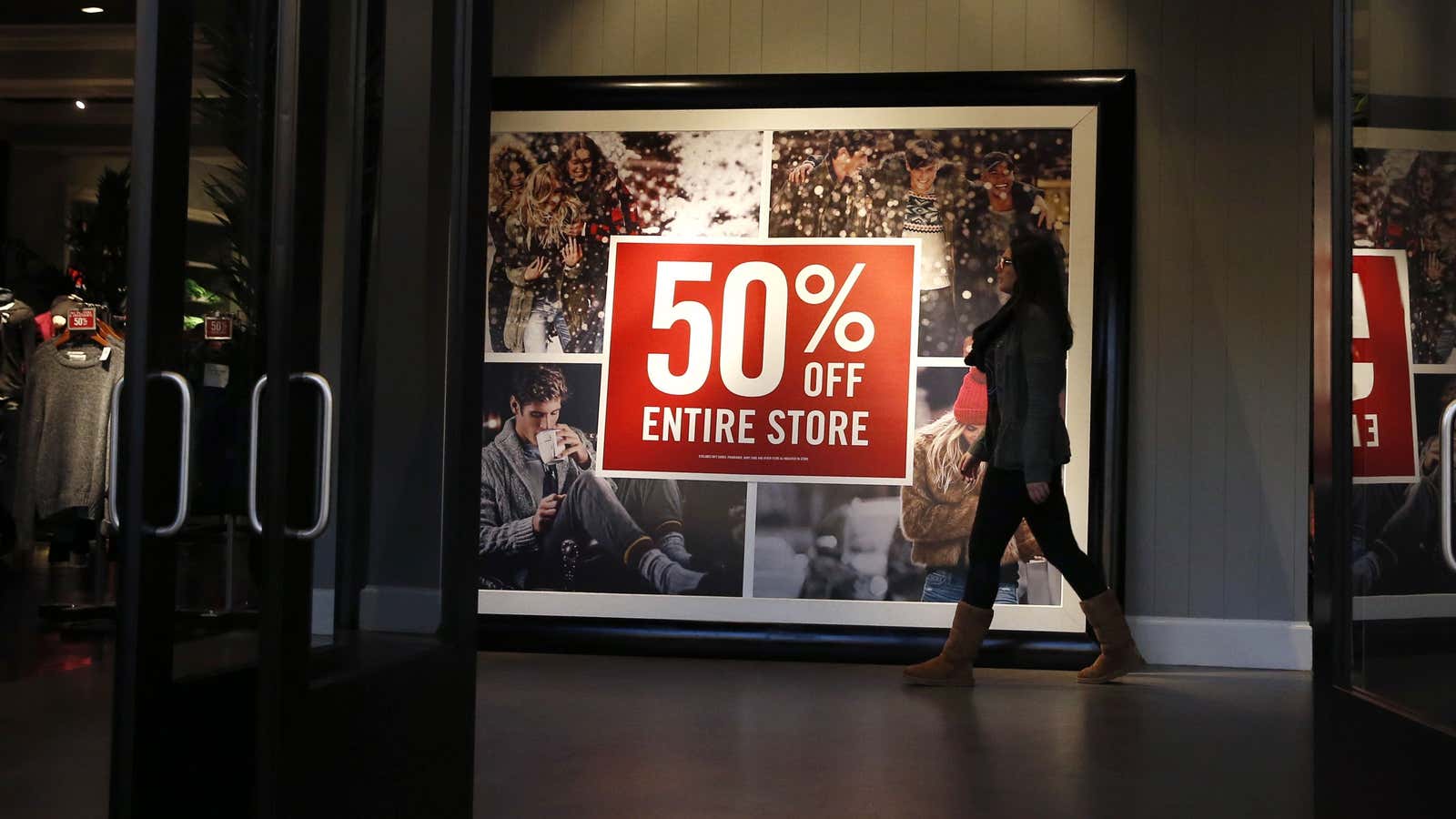In his 2008 letter to Berkshire Hathaway’s shareholders, Warren Buffett recalled a lesson from his mentor, investor Benjamin Graham: “Price is what you pay; value is what you get.”
Graham’s observation was coined in the mid-20th century, but it’s an insight that crypto investors would be wise to remember. Right now, the global price of bitcoin is around $8,700. On individual exchanges, though, the cryptocurrency can trade for more than $1,000 above or below that price. Wherever you decide to buy, you’re getting the same digital currency: the only difference is how much it will cost you.
Although you’ll frequently read stories about bitcoin’s price rising and falling, the reality is more nuanced than that. The global bitcoin price is a weighted average, compiled and calculated across a wide range of exchanges. It reflects whether the cryptocurrency’s price is generally going up or down, but it doesn’t tell you how much bitcoin costs on a specific exchange, at a specific time. Granular data matter, because those are the prices that you’ll see (and pay) when you visit an exchange.
For most people, cryptocurrencies are not an urgent purchase. It makes sense, then, to take the time to shop around for the best price and the safest trading platform. Just as you would visit multiple dealerships while buying a new car, comparison shopping is the way to get the best deal on bitcoin.
Shrewd readers should note that bitcoin’s various prices present an arbitrage opportunity—that is, a chance to buy low on one exchange and sell high on another. Easy money, right? It’s rarely that simple in practice. Trading bitcoin is hazardous due to price volatility, the risk of hacking and theft, and plain old user error (like sending crypto funds to the wrong wallet address). Industry insiders say that profitably trading across exchanges requires at least $4 million in starting capital, so you can maintain large, pre-funded accounts on multiple platforms.
Bitcoin arbitrage isn’t for the faint of heart or the light of wallet, but if you want to try your hand at this game, it’s important to understand the factors that drive crypto price differences.
Market depth
The main reason you’ll see bitcoin trading for far more than the global average on some exchanges is because of minuscule trading volumes. Small purchases made by a few traders at exorbitant prices may result in quoted prices way above the global average.
Often, this occurs for less popular trading pairs on smaller exchanges. For instance, on SouthXchange, bitcoin recently traded for the equivalent of $15,000 against Winco, a little-known cryptocurrency. On many days, there is only $1,000 or so in trading volume for that currency pair. (And it’s not clear whether market activity is real or artificial on some crypto exchanges). Because of limited market depth, sometimes you’ll even see price discrepancies on the same exchange.
Legal limitations
Price differences persist because of market friction. For example, on South Korean crypto exchanges, bitcoin regularly trades at a small premium. Observers attribute this to Koreans’ appetite for risk, and a lack of other investment opportunities. Near the height of crypto mania, in early 2018, bitcoin briefly traded for 50% more in South Korea than it did in the US.
Normally, you’d expect the price gap to narrow (and it has), but financial regulation makes it difficult to move money to and from South Korea quickly. An exec from a South Korean bitcoin exchange explained that only a select group of traders, with dual citizenship, can take advantage of this arbitrage opportunity on their own. The idea, the exec said, is to buy bitcoin cheaply in the US, transfer it to a South Korean exchange, and sell it for Korean won. Traders face exchange-rate risk in each leg of the trade. Groups of traders trying to take advantage of the arbitrage opportunity have additional co-ordination risks.
A lack of standards
The fact that bitcoin doesn’t have a single global price is not necessarily a bad thing. People in different places are willing to pay different prices for the same thing. In that way, bitcoin is no different from oil, chicken, or diamonds.
Ultimately, settlement on the bitcoin blockchain is the same everywhere. The digital currency is fungible—a unit of bitcoin is a unit of bitcoin, no matter where you are. But access to the crypto market is not uniform. So, to guarantee the best price, whether you are buying or selling, you ought to explore all trading platforms that are (legally) available to you: LiveCoinWatch is helpful tool for exploring crypto prices on individual exchanges. If you don’t like what you see, keep shopping.
🔑🔑🔑
What you need to know—and why
Block.one, a company which raised more than $4 billion through an initial coin offering and created a cryptocurrency called EOS, will return money to some of its shareholders. Backers include Peter Thiel, cofounder of PayPal and Palantir, and Mike Novogratz, CEO of Galaxy Digital. The startup held as many as 140,000 bitcoins at one stage. Block.one reportedly plans to launch a social media product sometime next month.
The takeaway: Novogratz’s firm sold its stake in Block.one for $71 million, realizing a 123% return. While Galaxy Digital described the sale as a victory, it raises doubts about the long-term prospects of Block.one. “A private buyback of this sort signals to me that the company believes that there are few growth opportunities in sight, or badly wants to consolidate ownership and avoid outside scrutiny,” said Nic Carter, a partner at Castle Island Ventures, a crypto investment firm.
Please send news, tips, and buybacks to [email protected]. Today’s Private Key was written by Matthew De Silva and edited by Jason Karaian. A cynic is a man who knows the price of everything, and the value of nothing.
